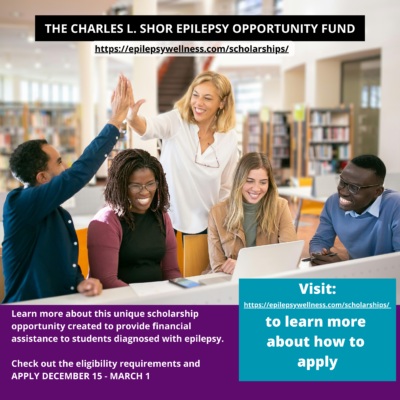
This blog post was submitted by Sunovion Pharmaceuticals Inc. Dr. Nassim Zecavati is a paid consultant of Sunovion Pharmaceuticals Inc. Certain organizations are mentioned in this post; this does not constitute an endorsement by Sunovion of these organizations.
Meet Nassim Zecavati, MD, MPH
Transition of care is a stressful time, but it doesn’t have to be. As a board-certified pediatric neurologist who leads a transition of care clinic, I’ve cared for many families who do not fully appreciate the importance of transitioning care, especially for patients with epilepsy.
What is Transition of Care in Epilepsy?
So, what do we mean when we say “transition of care,” specifically for young people with epilepsy? It’s the process in which pediatric patients shift their health care needs to an adult health care system. There are locational, vocational, educational, and medical decision-making considerations that are important to take into account when going through the process of transition. By starting the dialogue early and continuing the conversation with their neurologist, patients will be able to address all aspects of care, making the transition as smooth as possible.
However, I’ve noticed that if the process of transitioning young patients is neglected, there is a risk that vulnerable patients with epilepsy may drop out of the health care system after adolescence. It’s a challenging time for young patients who are turning eighteen, facing issues such as power of attorney, guardianship, and the apprehension and uncertainty that comes with navigating an intimidating adult health care system. Young patients benefit from learning strategies to balance seizure management with their social/emotional needs so that neither is neglected.
To better prepare epilepsy patients, families are strongly encouraged to start talking to their health care providers about transition of care as early as 12 years of age, and it is recommended to continue the discussion regularly. This will make it easier for patients and their families to determine what types of support they will need going forward. Talking to patients early enough and creating a care plan with them is especially important for patients with neurodevelopmental disabilities. That way, by the time the patient turns 18, any issues that may arise will have largely been addressed.
Going through a formal transitions clinic assists families in finding the right adult health care provider. I would encourage families who are embarking on the transition path to go to GotTransition.org for general health care transition resources or ChildNeurologyFoundation.org to learn about transitioning from a child neurologist to an adult neurologist. Some of the resources they provide include a Transitions Tool Kit, a checklist that goes over the steps that should be addressed for families and providers.
Patients and their families benefit from learning about the health care team and how treating epilepsy and maintaining overall good health changes with age. The hope is to support and empower patients to become successful, healthy, and as independent as possible. We want to wrap these informative and necessary services around patients in order to provide the best neurological care possible and to ultimately improve health care outcomes and patient satisfaction.









Leave a Reply